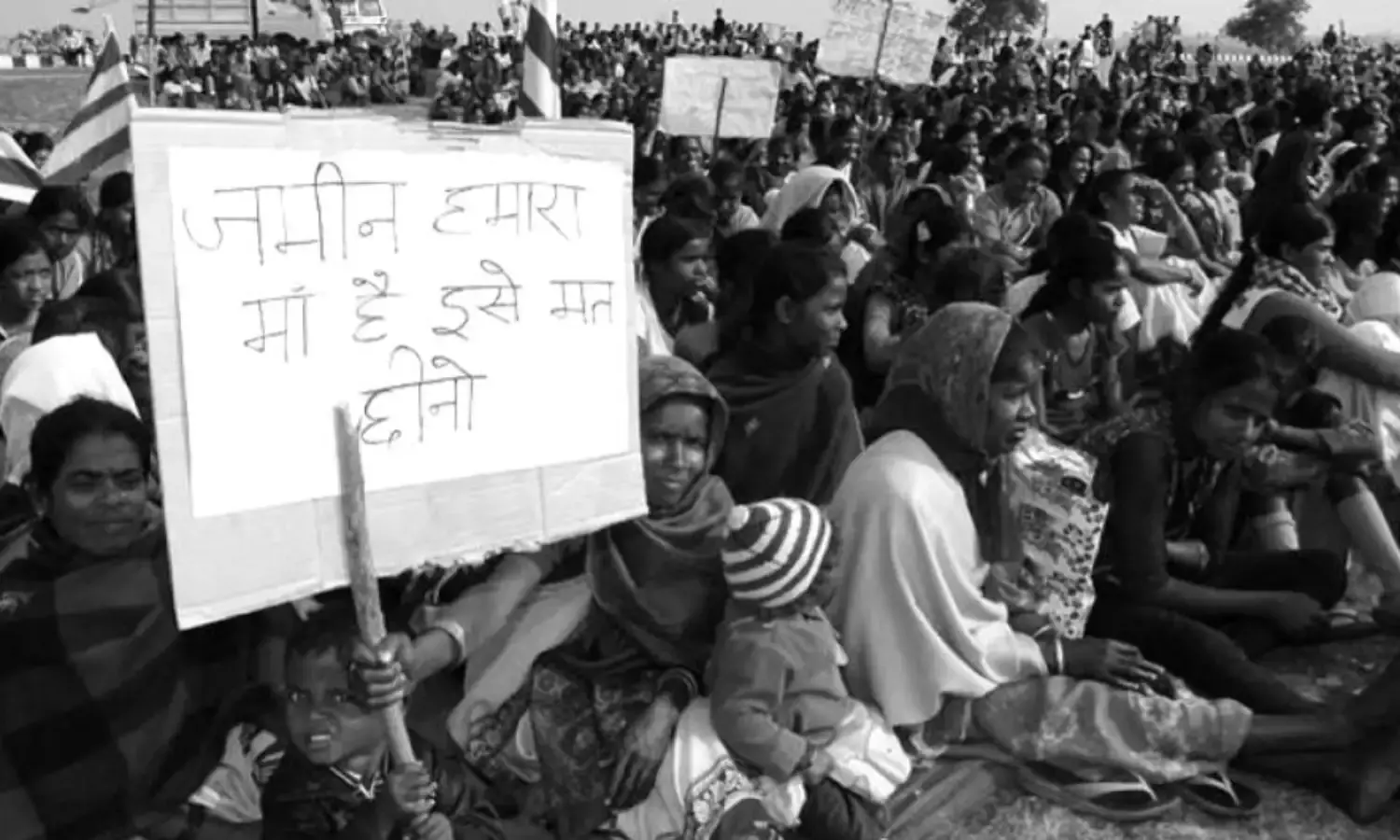'Jharkhand's Adivasis are very clear about what they want': Xavier Dias
In conversation with Xavier Dias

Earlier this month a striking video started making the rounds of civil society Whatsapp groups in Ranchi and New Delhi. In the video tribal women could be seen pleading with officials of Adani Power Limited in Godda in eastern Jharkhand over the acquisition of multi-cropped land for a proposed thermal power plant. Soon afterwards a local MP visited the affected villagers and stated that the struggle to resist the corporate loot of Adivasi land would continue.
Given the impoverishment in the state, Jharkhand’s Adivasi citizens have been actively collectivising and fighting for their rights at different levels. Many activists, despite not being from the oppressed class, are supporting this and trying to provide direction to the fight. One of them is Xavier Dias, 67, who has been an integral part of the Jharkhand movement since its inception and has worked tirelessly for the rights of contract labourers, especially Adivasis, in the mining industry.
The writers met him at his Ranchi residence for a conversation on the paradox of development and disparity, and the deplorable conditions of Adivasis resident in Jharkhand.
Excerpts from the interview:
Is the Jharkhand movement based on class or identity?
The Adivasis have been the biggest oppressed class. Their social and ethnic identity cannot be detached from class. It was a movement for dignity, identity and culture. The driving slogan for the movement was ‘Kamaane waala khayega, lootne waala jayega’. The problem is that all over the world, people treat Adivasis as savages, and consider themselves civilised. The country and the system are not only destroying a rich biodiversity for the sake of minerals, they are also destroying the people. Once we realise this, we will later start enquiring from them on know how they maintained the forest for 3000 years without forest fires, war or starvation.
From the 1970s to 2000, in what ways did you contribute to the Jharkhand movement?
I supported the movement but was not directly involved. I was working with bonded labourers being exploited in private mining areas, where their land was taken by the mine owners. The Jharkhand Mines Area Action Committee was formed to support the mining communities by spreading awareness and creating knowledge to demand what is rightfully theirs. Moreover we realised that the various struggles for labour, land rights and maintaining a cultural identity against colonial interests required the creation of an independent knowledge base. Hence, I along with a few others worked to establish a resource center for issues of Adivasi importance – the Bindrai Institute for Research, Study and Action or B.I.R.S.A – in 1989.
You were an outsider to Jharkhand and the nuances of tribal rights. How did you associate yourself with the movement?
My understanding of Adivasis was very different from the reality. The first time I met an Adivasi was at a student meeting in Bangalore in the 1970s where 3-4 students from Chaibasa, Jharkhand had come. Till then I thought Adivasis are people who wear grass skirts and feathers on their heads. When they told me about their problems and I visited Jharkhand, I had to stay back. The common people of Jharkhand and their lives inspired me. Coming from a privileged background, I understood the tricks of the oppressor classes and I was able to share these with the people.
What happened between how Jharkhand was envisaged and how it turned out?
When Jharkhand was formed, it was taken over by the ruling classes. The condition of Jharkhand now is not what we had expected after attaining statehood. We have cultural freedom but have failed politically and economically. The states in Eastern India have been the largest contributors to national development till today. The people of Jharkhand have given their land, minerals, forest produce and labour. Lakhs of people have migrated and have lost their lives. They haven’t got anything in return. However, I still believe the Adivasis are very clear about what they want. The rich history of Birsa Munda and the Jharkhand movement has ensured Adivasi pride about their identity, history and rights, making it tough for the right wing to get votes and evoke communal tensions in the tribal areas.
(Sania Mariam and Smriti Sikri are Associate Consultants with Policy and Development Advisory Group, New Delhi)
(Cover Photo: Indian Express)


